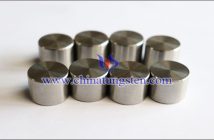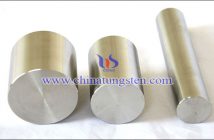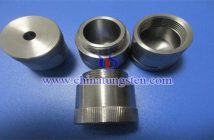Tungsten alloys have three kinds of types, tungsten molybdenum alloys, niobium tungsten alloys and hard alloys according to different added elements. Tungsten Molybdenum Alloy is an alloy containing molybdenum and tungsten, which includes two series of molybdenum tungsten alloy with molybdenum as the main additive element and tungsten molybdenum alloy with tungsten as the main additive element. The two alloys can be formed in any ratio and are completely solid solution alloys at many temperatures.
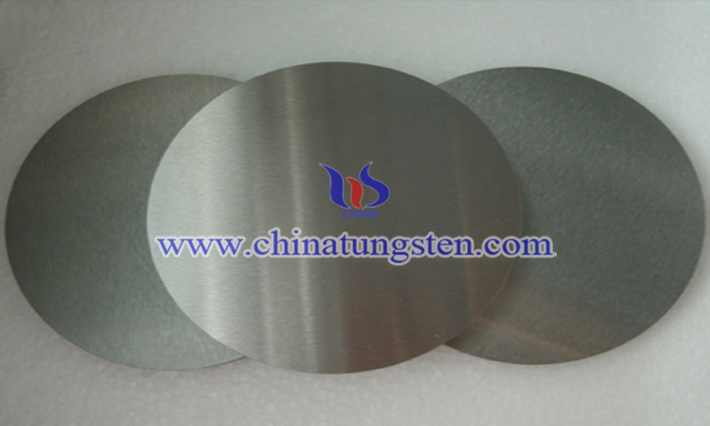
The nominal compositions of commonly used Molybdenum Tungsten Alloy are Mo-30W, Mo-50W and Mo-85W.The Mo-W alloy can be regarded as a transition alloy between Mo and W. Therefore, the alloy can be applied in a wide temperature range between molybdenum and tungsten.
Ⅰ Performance
1.Temperature Characteristics
The melting point of Tungsten Molybdenum Alloy increases with the increase of W content. When W content increases to 25%, the melting point of the alloy is about 200 degrees centigrade higher than that of pure Mo. Therefore, the corresponding alloy composition can be selected in the range of 2620~3410 degrees centigrade according to the service temperature and the required melting point of the alloy. This advantage is also an advantage that Tungsten Molybdenum Alloy can be widely used.
2.Lattice Constant
The lattice constant and density of Molybdenum Tungsten Alloy increase linearly with the increase of W content.The Hardness and strength of Tungsten Molybdenum Alloy also increase with the increase of W content.
3.Hardness
The maximum room temperature hardness of the alloy is between 90%~100% tungsten content(at room temperature), and its Vickers hardness is as high as 3530~3860MPa, which is more than double that of pure molybdenum. The maximum hardness of the alloy at high temperature is between 70% and 85% of tungsten content. When the tungsten content increases from O to 40%, the room temperature tensile strength of the as-processed Tungsten-Molybdenum Alloy increases from 617MPa to 900MPa. Hardness values of Tungsten-Molybdenum Alloy ingots melted by vacuum arc are listed in the table.
4.Hardness of Tungsten Molybdenum Alloy ingot melted by vacuum arc
Strengthening mechanism The strengthening effects of binary Tungsten-Molybdenum Alloy are mainly solution strengthening and strain strengthening. When titanium, zirconium, niobium, carbon and other alloying elements are added to the alloy, it will cause obvious precipitation strengthening.
Ⅱ The Preparation Method
There are three common production methods for preparing Tungsten Molybdenum Alloy: powder metallurgy, vacuum arc melting and vacuum electron bombardment melting. Powder metallurgy is the most widely used method, because it is simple and can obtain alloys with fine grains, which is beneficial to plastic processing. The main process flow of powder metallurgy method is: Mechanical mixing of molybdenum powder and tungsten powder in proportion; Pressing into a blank by a mechanical press or an isostatic press; And then sintered into alloy in a high-temperature sintering furnace filled with hydrogen. The sintering temperature increases with the increase in tungsten content, ranging from 2150 degrees centigrade to 2300 degrees centigrade. Finally, the sintered alloy is rolled or forged.
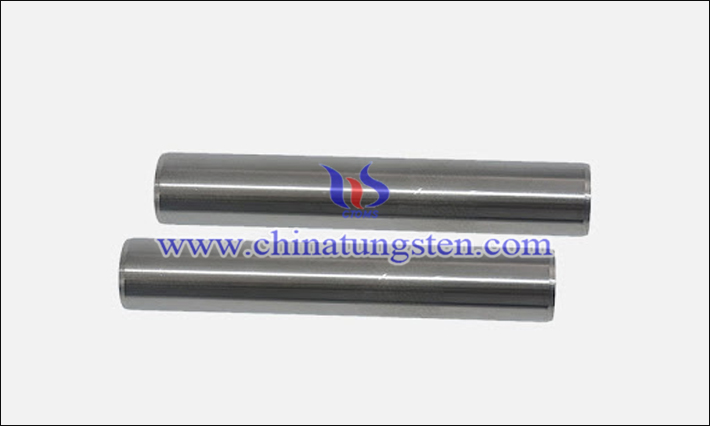
Ⅲ Uses
Tungsten Molybdenum Alloy can be used at higher temperature than molybdenum and its alloy. For example, when Tungsten Molybdenum Alloy is used as electrode, runner and thimble in the Bourget furnace for producing refractory ceramic fiber with high melting point, its service life is much longer than that of pure metal molybdenum products. Mo-30W has higher corrosion resistance to zinc liquid than pure molybdenum, and is mostly used in zinc liquid temperature measuring tube, rotor of zinc liquid pump and some corrosion resistant parts of zinc smelting furnace. Tungsten Molybdenum Alloy can also be used for gas rudder and guard plate of solid rocket motor due to its high melting point, good ablation resistance and flame erosion resistance of solid particles.

